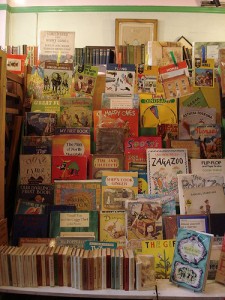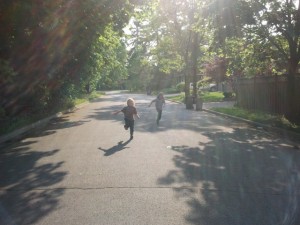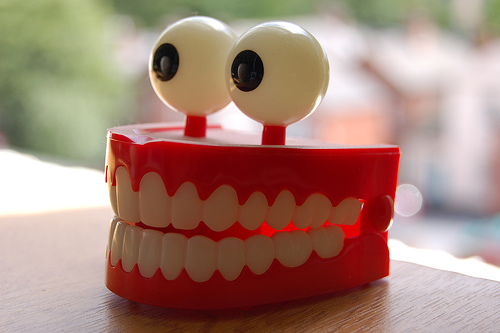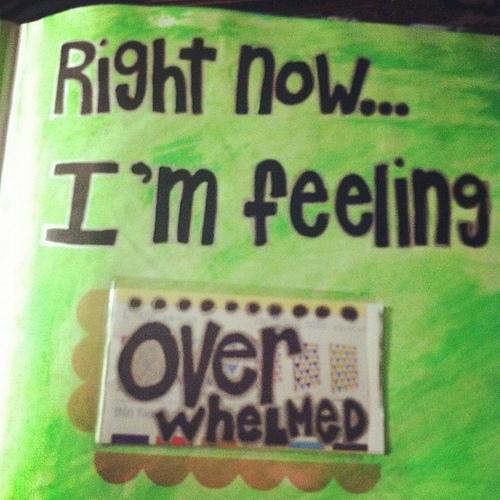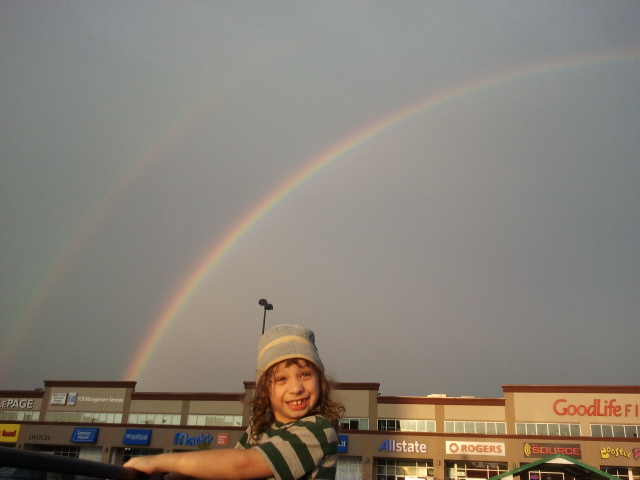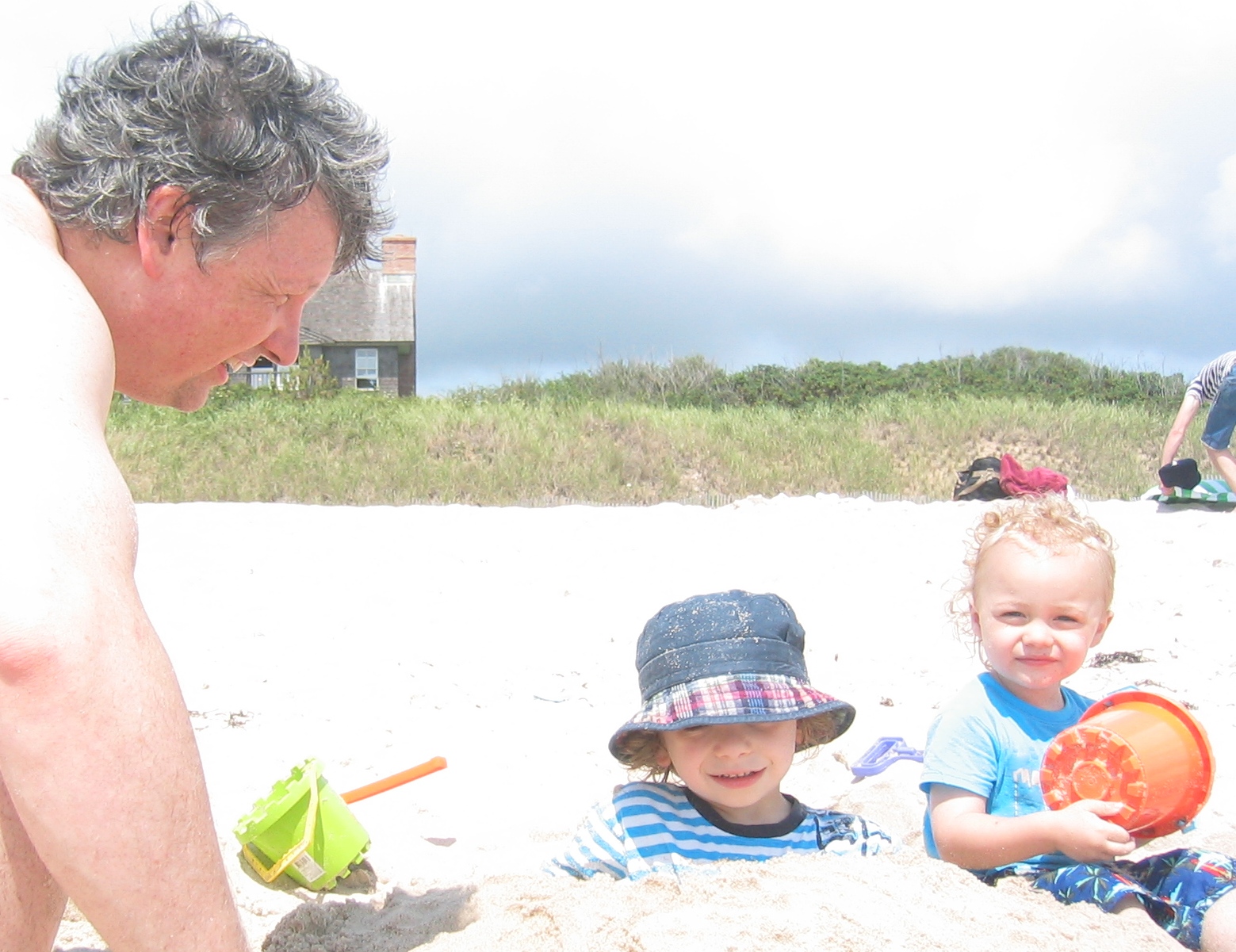I am participating in the 2012 Wordcount Blogathon, which means one post every day for the month of May.
My younger son James was just over a year old when his big brother George was diagnosed with autism. As we adjusted to our new reality and tried to figure out what we were supposed to do for George, we anxiously – almost obsessively – watched James for signs of a delay. We scoured developmental checklists and asked George’s speech therapist how James’ speech should be progressing.
Thanks to our family doctor’s initial refusal to give us a referral, George’s diagnosis came a full year after it should have. Every time I thought about the year of missed interventions, I felt sick. I did not want history to repeat itself: if James had autism or anything else, I wanted to know about it right away.
Fairly early on, it became apparent that we didn’t have anything to worry about, at least from an autism point of view. James’ speech development was slightly ahead of the curve. He hit the “terrible twos” right on target, and his interactive play skills showed up right when they should have.
When James started going to school, it felt kind of strange to just install him in a regular classroom instead of having to go to special ed review meetings and haggle over the wording in IEP’s (Individual Education Plans).
School was not without its challenges for James, though. In Ontario, the age cutoffs run on the calendar year. Children start Junior Kindergarten the year they turn four, whether they celebrate their birthdays in January or December.
James, being a Christmas Day baby, was very young when he started school. He was almost four months shy of his fourth birthday, by far the youngest and smallest kid in his class. He had not developed the coping skills that most of his classmates had, and for the first few weeks he cried almost every day.
The Kindergarten teacher was a kindly man who took James under his wing during that initial period of adjustment. He made sure the other kids weren’t too rough with him, and found imaginative ways to help James not only adapt to school, but to enjoy it. James adored the teacher, and by Halloween of that year, he looked forward to going to school every day.
Along with a number of his classmates, James suffered a setback when the teacher unexpectedly died just before Christmas of that year. He didn’t even really know what death meant, and he seemed to take it a bit personally that the teacher had “left” him.
But James is as resilient as the next kid, and he bounced back. By the time he reached the beginning of Grade 1 he was on track again.
Or was he?
Shortly after James started Grade 1, I noticed that his reading did not seem up to scratch. It’s not like I was expecting the kid to read War and Peace, but he was not mastering even the most basic of words. He was almost six and could do little beyond identifying the letters of the alphabet, whereas George had been reading fluently by the time he was four and probably would be able to read War and Peace.
James’ inability to read was not for lack of trying. The poor child tried gallantly to make sense of the strings of letters. I started wondering if he had dyslexia, like his dad. If this was the case, I wanted to know right away, knowing that early intervention would be the key to success.
I spoke to James’ teacher, who confirmed that he was reading below grade level.
“Let’s see where he’s at by the end of this school year,” she advised.
Immediately, I balked, remembering how George’s autism diagnosis had been delayed because of a doctor who said something very similar. I told the teacher why I was reluctant to procrastinate, and she was quick to reassure me.
“Trust me,” she said gently. “Many first-graders don’t really get reading until close to the end of the school year. And remember, if James had been born just a week later, he’d only be in Kindergarten right now.”
Where every fibre of my being had known that our family doctor was wrong about George, something told me to have faith in James’ teacher. And so I waited.
Within weeks of that conversation, James was starting to make progress – not in giant leaps, but in baby-steps. He was reading simple familiar words. It was highly encouraging, although he still got frustrated when he couldn’t figure out the longer words.
One day about two weeks ago, James’ teacher excitedly pulled my husband to one side when he picked James up from school.
“James flew through his spelling test today and he got them all right! I think something may have clicked!”
James himself was glowing from his accomplishment. All of a sudden, he had the confidence to really try to read. He started spelling words like Wednesday and vegetable. He developed a sudden interest in making words with George’s alphabetic fridge magnets (much to George’s chagrin).
James is still reading slightly below grade level, but it is increasingly likely that he will catch up by the time school lets out for the summer. His teacher was right on the money.
And I get to celebrate the accomplishments of not just one child, but two.
I feel like the luckiest, proudest mom on the planet.
(Photo credit: http://www.flickr.com/photos/bagelmouse/4700001481. This picture has a creative commons attribution license.)





